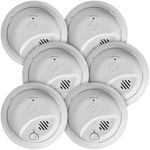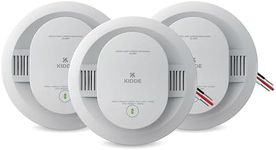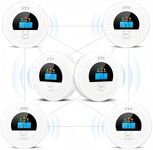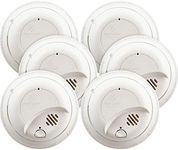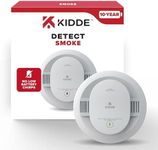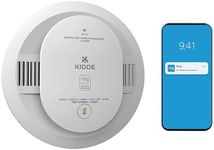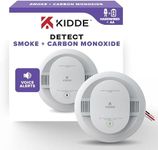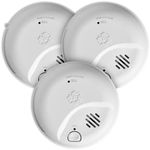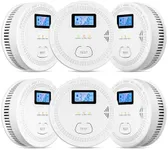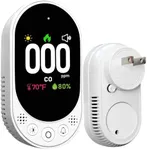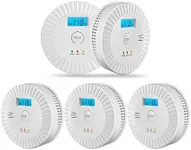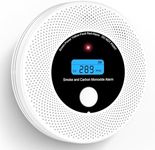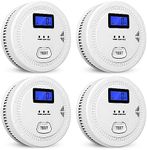Buying Guide for the Best Interconnected Smoke Alarms
Choosing the right interconnected smoke alarms is crucial for ensuring the safety of your home and loved ones. Interconnected smoke alarms are designed to communicate with each other, so when one alarm detects smoke, all alarms in the network will sound. This feature provides an added layer of protection, especially in larger homes or multi-story buildings. To make an informed decision, it's important to understand the key specifications and how they align with your specific needs.Interconnectivity TypeInterconnectivity type refers to how the smoke alarms communicate with each other. There are two main types: wired and wireless. Wired alarms are connected through physical wiring, which can be more reliable but may require professional installation. Wireless alarms use radio frequency to communicate, making them easier to install but potentially more susceptible to interference. Choose wired if you prefer reliability and have the means to install them, or wireless if you need a simpler installation process.
Power SourceThe power source of a smoke alarm can be either battery-operated, hardwired with a battery backup, or a combination of both. Battery-operated alarms are easy to install and maintain but require regular battery replacement. Hardwired alarms are connected to your home's electrical system and often come with a battery backup for power outages. Consider battery-operated for ease of installation, hardwired for a more permanent solution, or a combination for the best of both worlds.
Sensor TypeSmoke alarms use different types of sensors to detect smoke: ionization, photoelectric, or dual-sensor. Ionization sensors are better at detecting fast-flaming fires, while photoelectric sensors are more responsive to smoldering fires. Dual-sensor alarms combine both technologies for comprehensive coverage. Choose ionization for areas prone to fast-flaming fires, photoelectric for areas with more smoldering fire risks, or dual-sensor for overall safety.
Alarm VolumeAlarm volume is the loudness of the alarm sound, typically measured in decibels (dB). A higher dB rating means a louder alarm, which is crucial for ensuring that the alarm can be heard throughout the home. Most smoke alarms have a volume of around 85 dB, which is sufficient for most homes. Consider higher dB ratings if you have a larger home or if there are individuals with hearing impairments.
Smart FeaturesSome interconnected smoke alarms come with smart features, such as mobile alerts, integration with home automation systems, and voice alerts. These features can provide additional convenience and peace of mind by allowing you to monitor your alarms remotely and receive notifications on your smartphone. Choose alarms with smart features if you value remote monitoring and integration with other smart home devices.
Ease of InstallationEase of installation refers to how simple it is to set up the smoke alarms. Wireless alarms are generally easier to install since they don't require wiring, while hardwired alarms may need professional installation. Consider your comfort level with DIY projects and whether you prefer a quick setup or are willing to invest in professional installation for a more permanent solution.
Maintenance RequirementsMaintenance requirements include tasks such as battery replacement, sensor cleaning, and regular testing. Battery-operated alarms need regular battery changes, while hardwired alarms with battery backups also require occasional battery replacement. Regular testing and cleaning are essential for all types. Choose alarms with maintenance requirements that you can easily manage to ensure they remain functional.
